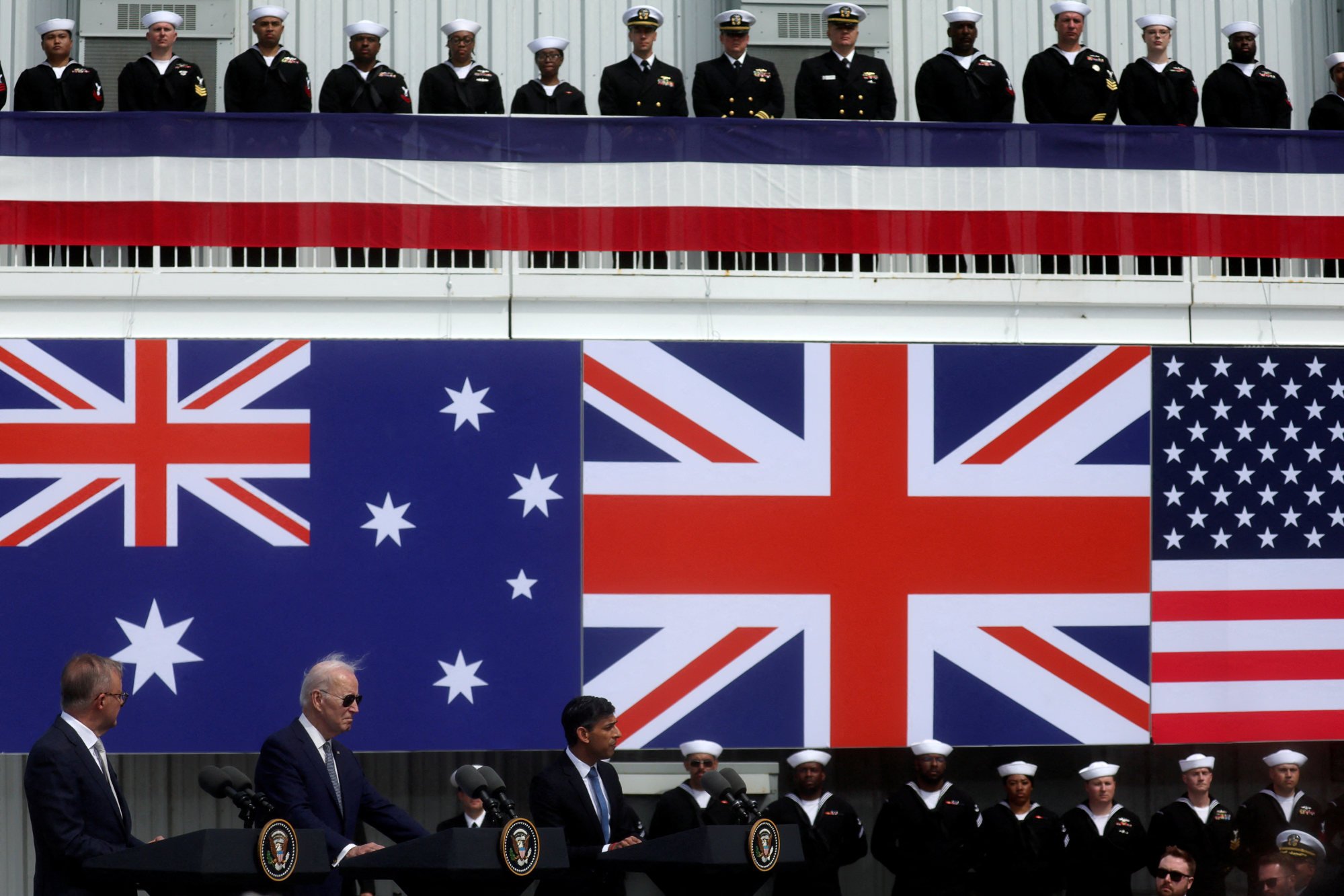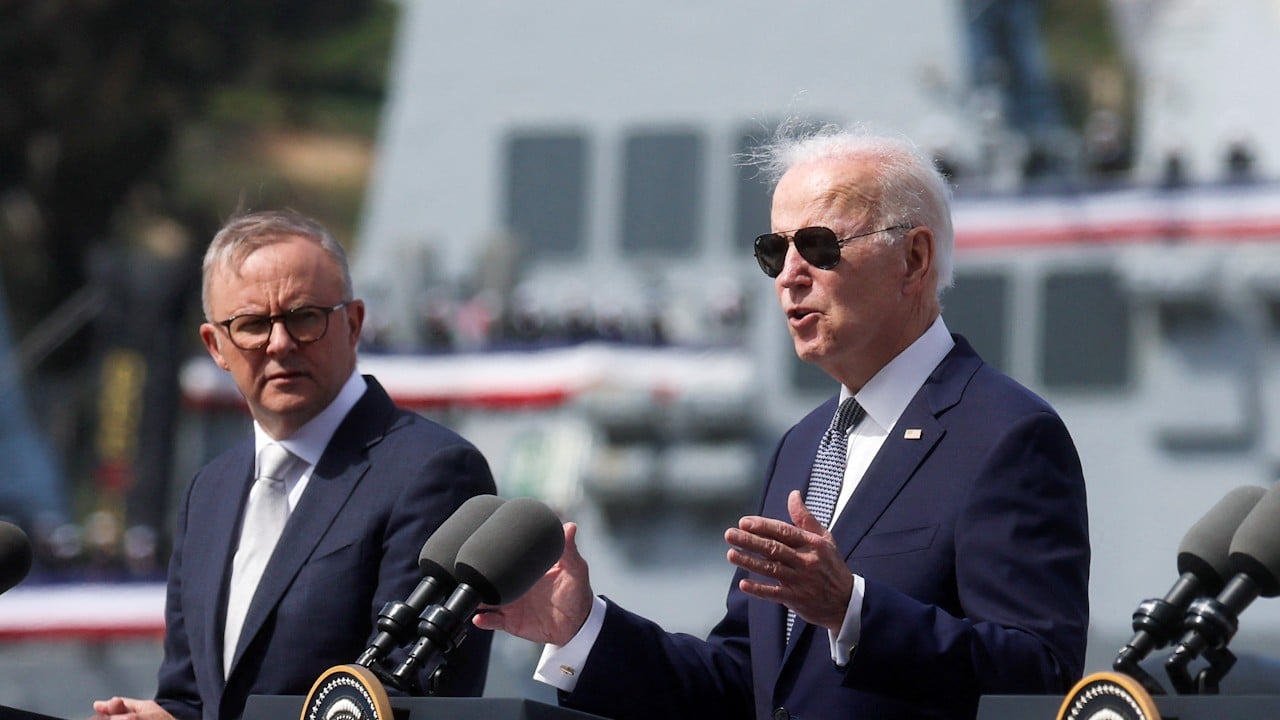This has raised questions over Washington’s ability to fulfil its commitment to sell Canberra up to five of the nuclear-powered vessels starting in the 2030s.
The US’ latest announcement was anticipated by Aukus critics, such as eminent Australian defence expert Hugh White, who have argued that Australia not only does not need these kinds of submarines, it was doubtful Washington would be able to deliver them.
On Wednesday, former Australian leader Malcolm Turnbull told local media that the US was not going to sacrifice its own defence needs to meet Australia’s. “The Americans are not going to make their submarine deficit worse than it is already, by giving or selling submarines to Australia,” he said.

In Canberra on the same day, a senate inquiry was underway questioning new legislation that would allow nuclear waste from the Aukus submarines to be dumped across the country.
Using weapons like submarines to counter Beijing’s incursions in the South China Sea was not the solution, said Varoufakis.
Existing world events proved that, he said, citing the example of Russia’s invasion of Ukraine.
“After successive pledges that there would be no expansion of Nato … which were completely and utterly violated by the West, does that justify Putin’s weaponisation of this particular violation of pledges to invade Ukraine? I don’t think so,” he said.
“In other words, let’s keep our heads. Let’s maintain diplomatic proportionality. And certainly, let’s not have A$368 billion spent on submarines, which are completely useless to Australia, that will do nothing – nothing to ameliorate those threats that you’re talking about,” said Varoufakis, who was Greece’s finance minister during the country’s 2015 economic crisis.
While it was fair to be concerned about Beijing’s “backtracking” on promises to not militarise the South China Sea, Varoufakis said there had to be diplomacy, or at most, “some military manoeuvres that are proportional to the threat”.
And in relation to China’s growing military base, Australia should only respond when there was real provocation, such as Chinese vessels entering territorial waters in Australia, otherwise weapons like Aukus submarines created a “false perspective on a threat which is not there”, he said.
Australia’s lack of independent China policy ‘greatest risk’ to stable ties: report
Australia’s lack of independent China policy ‘greatest risk’ to stable ties: report
Varoufakis said the Aukus deal would “turbocharge a new Cold War” and Australia would do more for its reputation by defusing such an initiative than join it.
“Australia has a duty to de-escalate the new Cold War. This can only be done if Australia ends its servility to the US, when the US is actively creating threats that then makes us pay through the nose to be protected from,” he said.
“Imagine an Australia that helps bring a just peace in Ukraine as opposed to a mindless forever war … a non-aligned Australia that is never neutral in the face of injustice, but also not automatically aligned with every warmongering adventure decided by its allies.”
Varoufakis said neither Beijing’s growing military strength nor concerns over its potential invasion of Taiwan were the reason for Washington’s move to contain it, but the US’ fear that its global financial dominance was being disrupted by China’s “cloud capital” systems, including online nonbank payment methods.
“America’s hegemony … relies entirely on its capacity to maintain its monopoly over international dollar-denominated payments,” he said. “That is what allows the United States to make the rest of the world pay for its deficits.”


